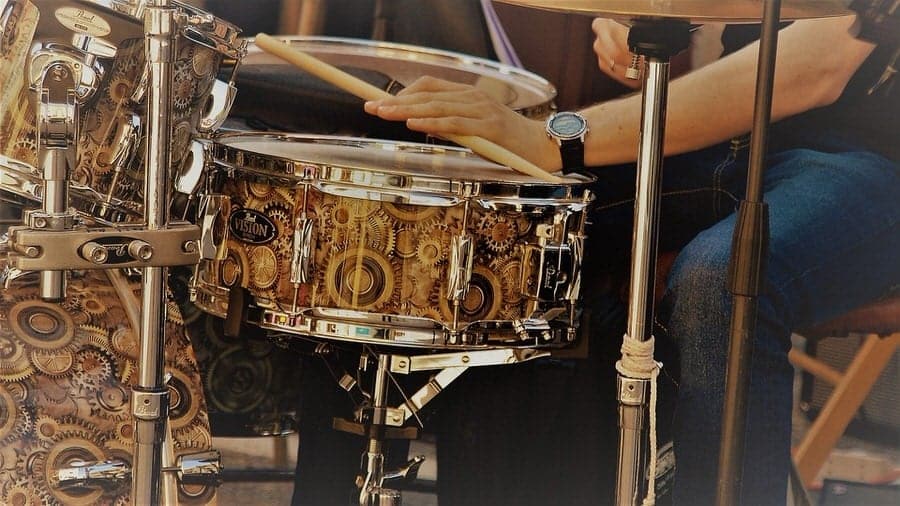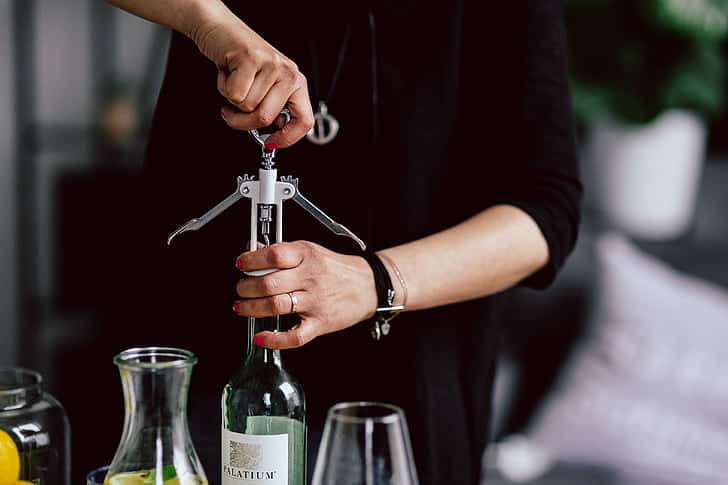Drums Practice
In search of tips on drums practice?
Do you know the one important thing which can help get your playing to a higher level? Practice! But not just playing the same thing again, and again, and once again. You will discover a technique to practice efficiently – and as a part of our ‘Beginner’s Guide To Learning The Drums’, we’ll provide you with the tricks and tips to help make you practice far better, not longer.

Verified Drum Practice Ideas You Need To Know
Practice. If you do it regularly enough, you’ll become excellent. You know this. So why is practice so difficult?
Motivation is vital. Without motivation, you will not propel yourself to go back to the instrument every single day. Exactly how do you get motivated?
By winning. Yes, that’s what I said. Winning. You’re in regular competition with yourself, and whenever things go nicely, you feel like you’re winning. When you’re in this particular mind-set, it is effortless to practice. It’s the circle of life – winning a lot more gives you more motivation, so you practice far more. Practising, even more, means you win more, therefore it gives you additional motivation. And this goes on and on exponentially.
Therefore if it’s so simple, exactly why is a practice still so hard?
Drum roll… The answer? Because it’s not really that straightforward! Just practising isn’t good enough. You could practice for eight hours daily but not improve.
So if it’s not the amount of practice that sets you on top of the circle of life, exactly what does?
One thing, and one thing alone – quality.
Practising for fifteen minutes on a daily basis, focused, useful excellent practice is a great deal more beneficial than 5 hours of unfocused, ‘auto-pilot’ practice.
So you simply need top-quality practice so that you can hop aboard the circle of life train?
Not a chance! There is nothing that easy. Mix quantity and quality, and you’ll finally turn into a first-class passenger.
Stay with me to discover how to buy your first-class ticket, and ways to continue on the train for as long as you want…

Structure Your Drums Practice
Should I practice for longer than an hour?
15 to 20 mins is a fantastic starting point, and probably not any longer than 45 minutes or so at a time. After this duration, we human beings are inclined to zone out – and therefore the practising becomes less efficient. As a rule of thumb, once you really feel your awareness waning, stop. Become happy that you simply showed up to your practice session, and don’t get worried how long you practice for.
How often should you be practising the drums?
This one is an easy answer – practice every day. In that way, you’ll convert your drums practice into a habit. A dedicated, focused daily practice is a lot more beneficial than twice a week for one hour at the same time. And remember, in case you’re pondering “but how do I spare the time to accomplish twenty minutes a day? !? ” – just take some of your time and efforts from social media over to the drums. We all do, after all, spend on average 142 minutes on social media on a daily basis!
When should I be practicing?
It makes no big difference when you practice, simply just providing you do the practice. Try out building a predetermined schedule for yourself vs simply being ad-hok. See which solutions work best, and stick with it.
Drums Practice Top Tips
1. Remove Possible Distractions
Imagine your practice time as ‘you time’. You will be hopefully enjoying the drums because you love it; so turn off your phone, tablet, laptop, watch, and then any other gizmo that’ll distract you!
2. Be Sure You're Relaxed
As you’ll end up playing for hours and many years to come, it’s really vital that you are comfy. The more at ease that you are, the more effective you’ll perform. Stress is invariably our enemy, and so keep it out of your practice room.
3. Set Yourself Targets
Think about an end result. And to accomplish this, you’ll have to set yourself some targets. ‘Mini-Goals’ are better than one huge goal…
Make a plan, and stay with it. Monday, Wednesday and Friday could possibly be studying 8 completely new bars/measures; with Tuesday and Thursday piecing together the things you know. Set yourself a reward, and when you achieve your selected goals and objectives, open up that benefit with a corkscrew!
4. Become Friendly With Undesirable Habits
A habit is something you constantly, or repeatedly carry out. And as we are studying things, most people are likely to perform them wrong before we do them correctly. And So I realize it appears like common sense, but be sure you aren’t practising your goof ups, or else they’ll change into bad habits. And everyone knows undesirable habits are hard to eradicate!
If you experience an undesirable habit showing up out from no-where, shout out a nice big HELLO to it. Then swat it like the most irritating fly.
Very similar rules apply for managing your technique. Put in the really hard, correct work in the beginning – and you’ll help save plenty of time in the future.
5. Keeping It Fun
Have you ever been driving a car, and suddenly found that you can’t remember the last 30 minutes? Or been on a journey which lasts several hours, however, you are only able to remember certain parts? This is exactly what I call being on ‘auto-pilot’. It is precisely what we must stay clear of during practice.
If you play the very same thing, time and again, you won’t improve. You will get bored. Your motivation will fade away. But what exactly is the solution? Switching you practice strategies!
There are lots of choices. Close your eyes to perform. Try playing the piece backwards. Attempt standing up or being seated. Play whilst wearing earphones. Perform every little thing gently, or perhaps loudly. The list goes on and on. Creation is definitely the name of the game, and whatever you do, don’t lose interest!
6. Turn into Your Very Own Mentor
There is a reason most of us went to school; and it’s because we discover best when we have an instructor standing over us, encouraging us to succeed. But unless you happen to be Founder of Microsoft, you’re not likely to be able to afford a teacher 365 days of the year. Should it make any difference? Certainly not! You happen to be your personal trainer – and also you come totally free!
To start with, it is more than likely that at least 50% of the time you are performing the drums, you’re too occupied concentrating instead of actually paying attention to what you are playing! It may sound silly, I know. But it’s true… So now that you’re conscious of it, fix it! Listen to your playing WHILST you play…
Subsequent, with the wonders of modern technology, it’s now increasingly simple to record your playing. So get your smartphone out, record, and critique yourself.
And even when the world’s richest individuals wanted to hire my personal coach, they couldn’t manage to pay for it!
7. Whatever You Perform, Don't Begin...
It seems right to start a piece at the beginning. The issue is should you choose that each session, the initial few notes will sound incredible, and yet end up being disproportionately practised in contrast to the remainder of the piece. Mix it up. Start outright at the end! Or in the middle! Or close your eyes and randomly select a part. Just don’t always begin from the beginning!
8. Enjoying The Easy Parts
We are all fascinated with the path of least resistance. In music, that means performing the straightforward pieces. Once we find an uncomplicated bit that sounds great, many of us usually tend to play it repeatedly. The trouble with this is the fact that we don’t advance. It’s actually an awful practice approach. So bypass the easy pieces, and focus on the sections that you’ll really need to work hard at.
Now consider this logically. If you decide to consciously choose what needs more practice, it would be the complicated part. Right? That needs a lot more love and attention. The straightforward portion will look after by itself.
Go on then! Find those complicated parts…
9. Don't Perfect The Piece
Sight-reading is a great exercise to round off your practice with. There’s no pressure to perfect the piece, and it can be a great deal of fun too! Additionally, it means that you can test your drum playing skills out on an entirely different piece – or even a different style of music.
10. Keeping Time
The metronome is there as your good friend, not foe. So make sure you use it and get to like it.
For segments that are really fast and difficult, the metronome is usually a wonderful resource. Set it up with a nice and effortless speed, that you can have fun playing the part correctly. Then every day, notch up the tempo by a little. Eventually, you’ll end up being at performance speed, plus it should really feel as comfortable as when you began at a slower speed.
And here is a bonus tip – always try and overshoot by ten percent. When you have to be at 150bpm, make sure you can play it at 165BPM – that way 150BPM will appear easily achievable!
11. And The Most Important Thing...
Keep in mind in number 3 I mentioned a nice bottle of wine? I figured that was important enough to mention it twice!

About the Author
Robert Emery
Robert Emery is Founder & CEO of Ted's List. He has performed all around the world as a conductor and pianist. From Sydney Opera House to the Royal Albert Hall, Robert has enjoyed bouncing around on stage in most of the major venues in the world. As a record producer, he has worked on fifteen No 1 albums, and hopes he can get to sixteen asap!
The Times called him 'the eccentric barefooted maestro' and the Mail quoted that 'the assured baton was controlled by the rather energetic and brilliant conductor'.
Robert has a wife (Mrs. E), two children (Master T and Master A) and four cats (Merlin, Mulberry, Partridge & Penguin). Between performing, producing, composing and running Ted's List, he runs an entertainment business called The Arts Group, comprising of a symphony orchestra, choir, live event production house, digital TV company and artist agency. Any spare time is usually devoted to sleep.
Other posts by this author
Drums Practice Bonus Tip
1. Try And Be Consistent
Each time you do something new, your brain learns something about it and produces a neuron. This neuron is like a branch of a tree, and the more instances you perform repeatedly the neuron task, you develop it. To put it differently, the branch of the tree gets stronger and more robust. This only happens though should you do precisely the same thing, repeatedly.
Conversely, whenever you change a little something, a whole new branch is established. When you play the same passage of music four times, and every time you use a different fingering or are not completely consistent, you’re generating four branches.
So what is the issue with that? A branch works much like a path your brain walks down. It must pick out one of the possibilities you’ve developed. The problem is that rather than one formidable choice, you have other weak selections. This just confuses your wobbly gel of a head and slows the processing time right down. The end result is a slip-up.
So always be consistently accurate from the 1st time of playing something. Understand things at a pace you can work well. And be aware of your neurons!
2. Recommended Reading
Here are some great books that really helped me when I was starting out and I regularly recommend them to students to this day.
Music Practice: The Musician’s Guide to Practicing and Mastering your Instrument like a professional
I also highly recommend you include How to Read Music in 30 Days in your must-read list. If haven’t already read our guide on How To Read Sheet Music, then do check that out as well.

Drums Practice - Summary
If you’ve learnt one thing from all the above, it has to be the following:
Don’t leave practice to chance. Structure it. Be conscious and never go on ‘auto-pilot’. Make notes of what you want to achieve in the short, medium and long term and write down the BPMs that you have achieved so far, and want to in the future.
I’m going to say it again! If you can’t play something perfectly along with the metronome, go back and do it slowly until it is perfect.
THEN you will be able to play it faster. But the speed will come quickly, I promise.
Then go shopping.
Have You Subscribed Yet?
Every week, on a Friday, I mail out the 4 Feature Friday email. It’s a basic idea that includes four excellent things I”ve discovered that week.
As long as it’s music connected, it could end up in the e-mail. Completely new songs, tips, products, reviews – nearly anything at all.
You’ll only get to see the weekly email if you join directly below. And we also promise to never, ever spam.
Read the next post in this series:




